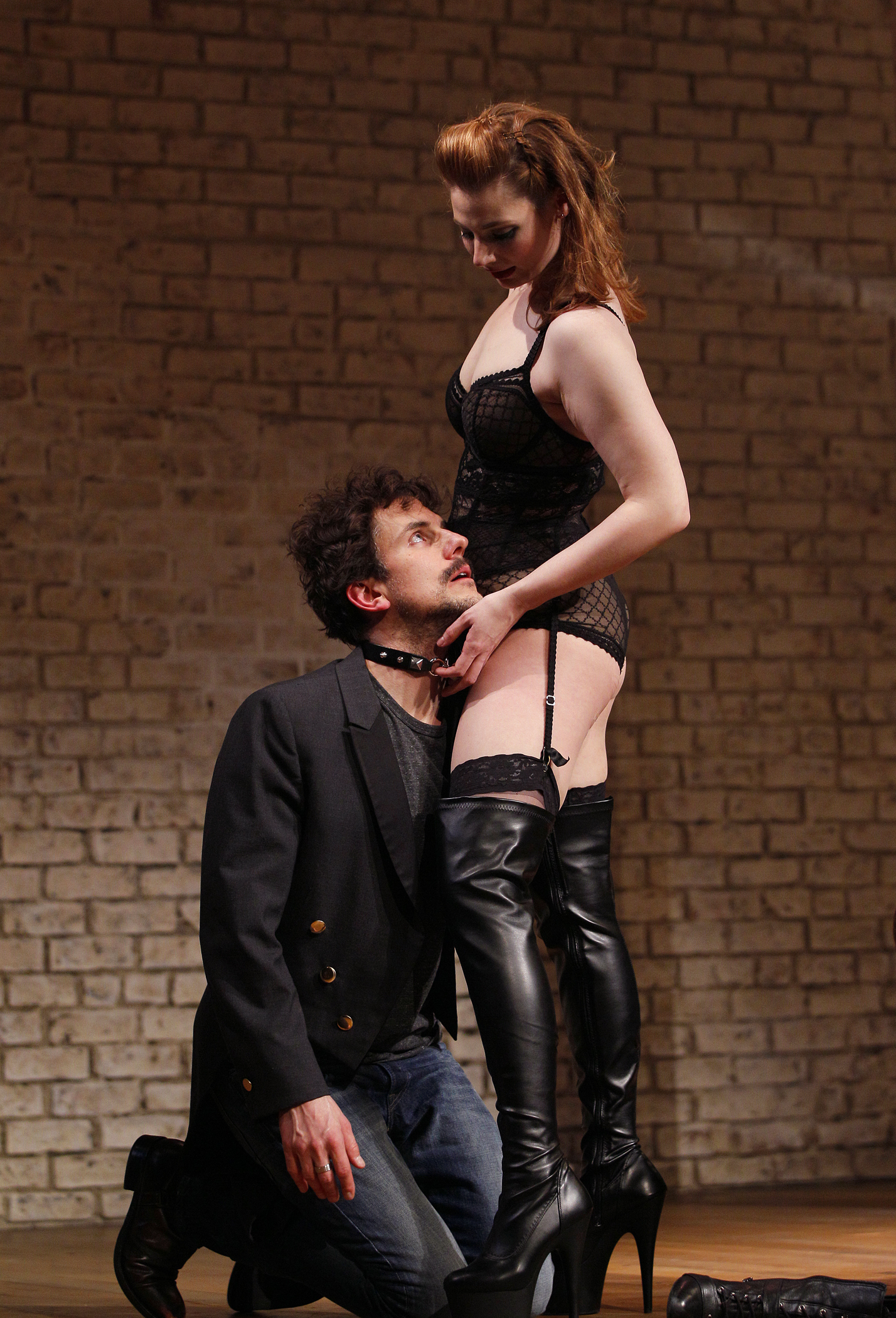Venus in Fur
Seattle Repertory Theatre, 155 Mercer St. (Seattle Center), 443-2222, seattlerep.org. $12–$80. 7:30 p.m. Wed.–Sun. plus matinees. Ends March 9.
Playwright Thomas, one of two characters in David Ives’ ingeniously twisty 2011 comedy, is nostalgic for the old days when theater (and life) was about outsized, “operatic” passions—to which end he has adapted Leopold von Sacher-Masoch’s 1870 novel Venus in Fur about the dominance/submission dynamic in relationships. (From Sacher-Masoch’s own proclivities comes the term masochism.) But alas, after a full day’s cattle call, director Thomas can find no actress woman-y enough to play the reluctant dominatrix Vanda. Enter the scampish bimbo caricature Vanda (yes, the same name as the role she is reading for), with a leather S&M suit, one boot, and yuks like “You don’t have to tell me about sadomasochism, I’m in the theater.”
In the spellbinding 100 minutes that follow, Thomas (Michael Tisdale) and his unexpectedly promising leading lady (Gillian Williams) tread through the minefields of Thomas’ earnest adaptation, exploding cultural gender bombs left and right. Much humor and tension comes from the constant shifting from elevated text discussion to small talk to the deeply personal. Indeed, it becomes part of Vanda’s crazy-making mystique that she eludes capture within any of those realms; she refuses to be cornered on Sibyl Wickersheimer’s gritty, bare-bones loft set. Who’s really in control here: the dominator or the subjugated? Chaser or chased? Hammer or anvil?
The actors, both from New York, are wonderful to look at and listen to. Williams pivots readily from Lucille Ball shtick to haute thespian mode, and her lithe, dancer-esque poses are just as controlled. Tisdale’s emphatic straight man is a slightly harder read behind his lunettes, yet his corrugated neck muscles and torso speak as articulately as his impressive chops about his state of agitation. Because the Rep has booked this proven property—an intimate two-hander—on its largest stage, it can be hard to observe fine facial expressions; the shifts between Thomas’ text and Ives’ aren’t always clear. Visiting director Shana Cooper seems to favor a high quotient of ambiguity here—a reasonable choice, given the play’s suspenseful withholding and subsequent revelations. Still, in the idea-rich fracas of Ives’ clever script, I found myself hungering for clearer directorial valences.
Ives offers us a rich ambrosia of power dynamics, politics, and paraphilia. This worthy production, replete with smart performances, sadistic lighting by Geoff Korf, and sexy costuming by Harmony Arnold, compels us to kiss its stiletto heel.
stage@seattleweekly.com








